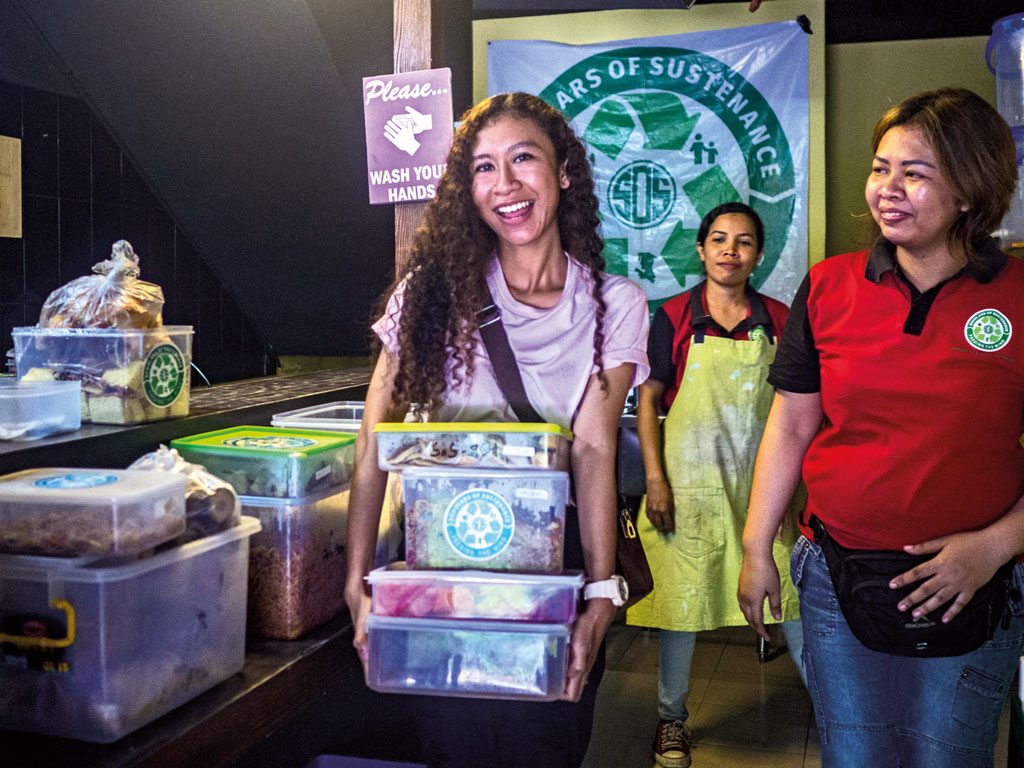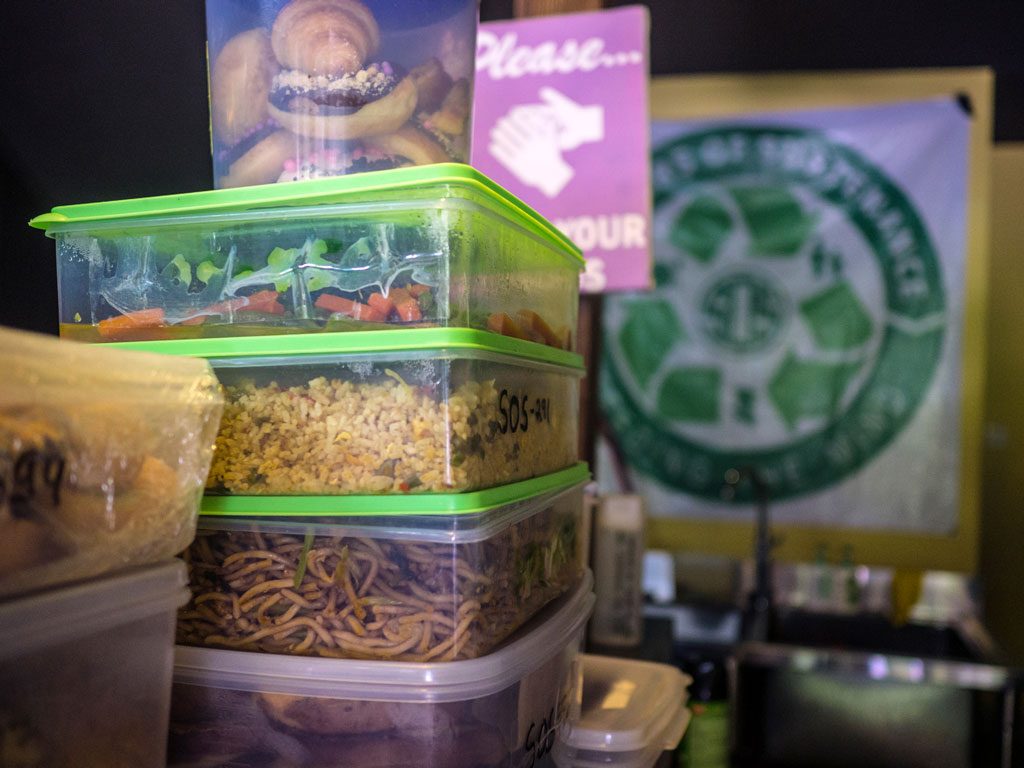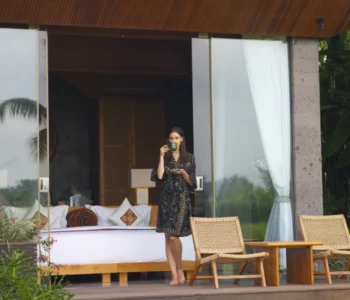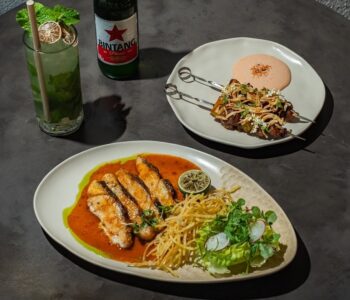Whilst one-third of all leftover food in the world is rotting in landfills, one organisation in Bali has decided to make a change, tackling this global issue at a local, manageable scale with the aim of building momentum and making meaningful impact.
“It’s happening,” said Bo Holmgreen, Founder of Scholars of Sustenance (S.O.S), an organisation focused on reducing food waste whilst simultaneously feeding the needy. “Big corporations, hotel kitchens and food suppliers are becoming more aware of the environmental impact of food waste but it’s all up to us to make a difference. “If we can get the word out to the rest of the population, getting them to throw less food away, it will have a major effect,” he said.

There are 7 billion people in the world but the world produces enough food for 10 billion every day; 1 out of the 7 billion go to bed hungry, meaning enough food for 4 billion people is wasted on a daily basis. These are important numbers to digest.
The mountains of food waste then decompose and emit methane gases that are harmful to the environment and can also be harmful to humans. When we think of methane emissions we tend to imagine its source as something toxic; that the banana peels and apple skins that are thrown away simply breakdown without any effects. The reality is food waste in landfills hugely contribute to the production of methane gas, whose effect on the atmosphere is some 20 times greater than carbon dioxide’s over a 100-year period.
Scholars of Sustenance was conceived in Bangkok, Thailand, then branched out to Bali in June 2017. The Bangkok hub now collects and distributes 2 tonnes of food per day for the needy. The Bali team has set the same objectives and are quickly catching up.
When S.O.S. first started in Bali, the team prepared 250,000 meals. As of now, they take food from 34 major hotels in Bali, a bakery, and more coming to join. The team has also supported victims of natural disasters, such as when Mount Agung erupted and the tragic Lombok earthquakes.
“I am always shocked to see how beautiful the food is – totally edible, good food that otherwise would go to landfills. So, we call it the S.O.S. magic where we take nothing and turn it into something. Real food for real people,” Bo explained to NOW! Bali.

The food comes in bulk containers every morning, which are ready to be inspected by the in-house food hygienists, whose role is to separate edible and non-edible food, optimise it, and prepare nutritional, balanced meals for the kids. All the food gets distributed and consumed on the same day. The food from each kitchen or hotel is anonymised, which means it cannot be traced back, as S.O.S. takes full responsibility for the food as soon as it reaches them. If the food isn’t good, it is either composted or given to low-income animal farms – no waste is ever wasted!
So, where does the food go? There are two components to S.O.S.: nutrition and education. The idea is to give better nutrition to orphans and children who don’t have access to good food in order to keep them in schools, or motivate them to learn a skill, for example, that can be put to good use. Secondly, the S.O.S. team are designing scholarship programmes to send the financially needy kids to school, and eventually higher education, so they can come back as qualified workers.

They have conducted food waste seminars with Rotaract Nusa Dua, an active group of adolescents, to raise awareness regarding the food waste damages to the environment, and simultaneously reaching out to the local communities. They work closely with RumahBerdaya, a safe house for Denpasar’s schizophrenic community, YayasanSolemen Indonesia, YayasanKasihPeduliAnak (Bali Street Kids Project), and more community centres and orphanages.
“Take Rumah Berdaya as an example. These people are looked at as outcasts or burdens, with many of their families abandoning them because of this. By providing them with good, nutritious food, we are making them more functional and capable of learning, for example, art, music, or even gardening, that in return can help the families relieve some of the financial restraints,” elaborated Duane James Denton, Director of Operations.
S.O.S. is one of many organisations that are helping to make Bali a better place. Through their professional systems of operation they are simultaneously reducing waste and negative impacts on the environment as well provide much-needed support to the marginalised communities on the island. We hope more businesses join their cause.
To help, volunteer, or join the S.O.S. Food Rescue movement, you and your business are welcome to donate any excess food to feed their needy recipients! Details can be found below.
Scholars Of Sustenance
Jalan Pararaton No.9E Dewi Sri, Kuta
+62 821 4747 7234
www.scholarsofsustenance.org









